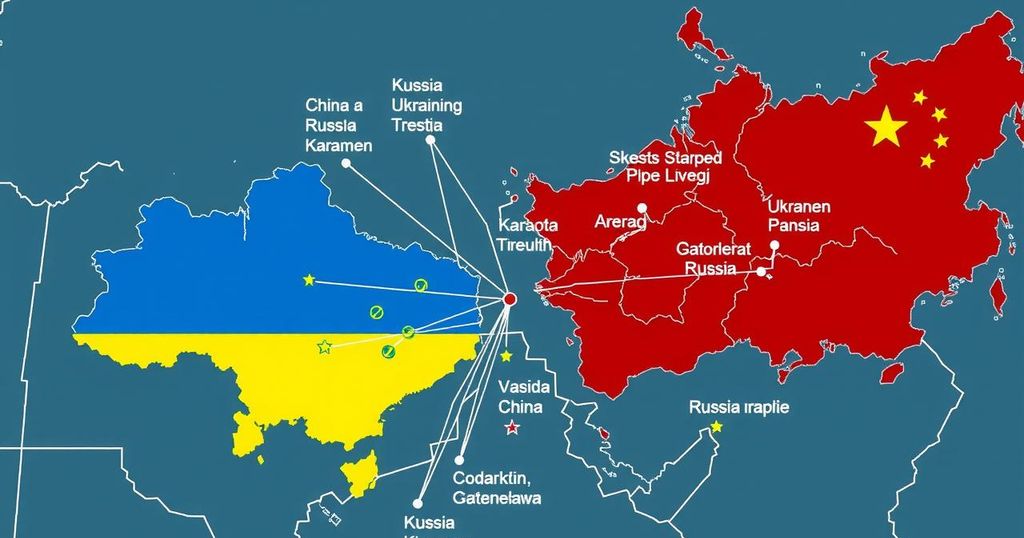Donald Trump’s return to the presidency may have significant ramifications for U.S. relations with Russia, China, and North Korea. He has pledged to resolve the Ukraine war quickly, but analysts warn he may face challenges due to the strategic alignment of these countries against Western influence. Trump’s positive views towards Putin and Kim highlight the potential for re-engagement, although existing geopolitical complexities could hinder his efforts.
The return of Donald Trump as President of the United States carries significant implications for international relations, particularly concerning China, Russia, and North Korea. Trump has vowed to resolve the ongoing conflict in Ukraine swiftly and has expressed more favorable opinions regarding both Russian President Vladimir Putin and North Korean leader Kim Jong-un compared to the current administration under President Joe Biden. Analysts suggest that Trump’s approach, which is characterized by a transactional focus on foreign affairs, may encounter substantial challenges due to the existing strategic alignment of these nations against Western interests.
One of the primary obstacles Trump faces will be the deep-rooted cooperation among China, Russia, and North Korea, as their synchronized goals are reinforced by their defiance against Western power. The recent involvement of North Korea in aiding Russia further complicates any efforts Trump hopes to initiate towards detaching these countries from their strategic bloc. Should Trump pursue engagement with Putin and Kim, analysts warn that overcoming these mutual interests will be a considerable hurdle.
The context of Donald Trump’s potential presidency highlights a complex geopolitical landscape following his commitment to conclude the Ukraine war. The layered interrelations among China, Russia, and North Korea pose significant barriers to U.S. diplomacy, particularly considering their collective opposition to Western dominance. The significance of their close ties underscores the intricacies inherent in attempting to negotiate with these nations, especially under a leadership style that prioritizes deal-making over traditional diplomatic approaches.
In summary, Donald Trump’s strategy for ending the Ukraine conflict may inadvertently expose the limitations of U.S. diplomatic maneuvering concerning China, Russia, and North Korea. The existing geopolitical dynamics, wherein these nations share aligned objectives against the West, present formidable challenges. As Trump seeks to re-establish connections with Russia and North Korea, understanding these international complexities will be crucial for any potential success in his foreign policy endeavors.
Original Source: www.scmp.com






